

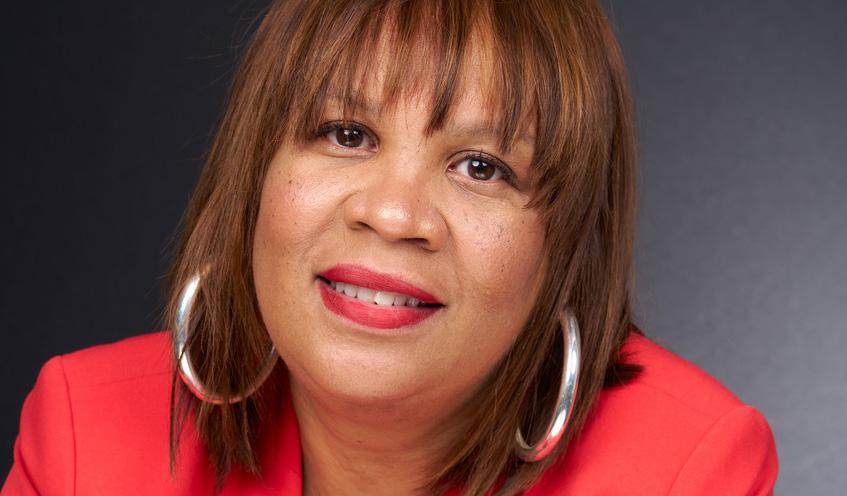







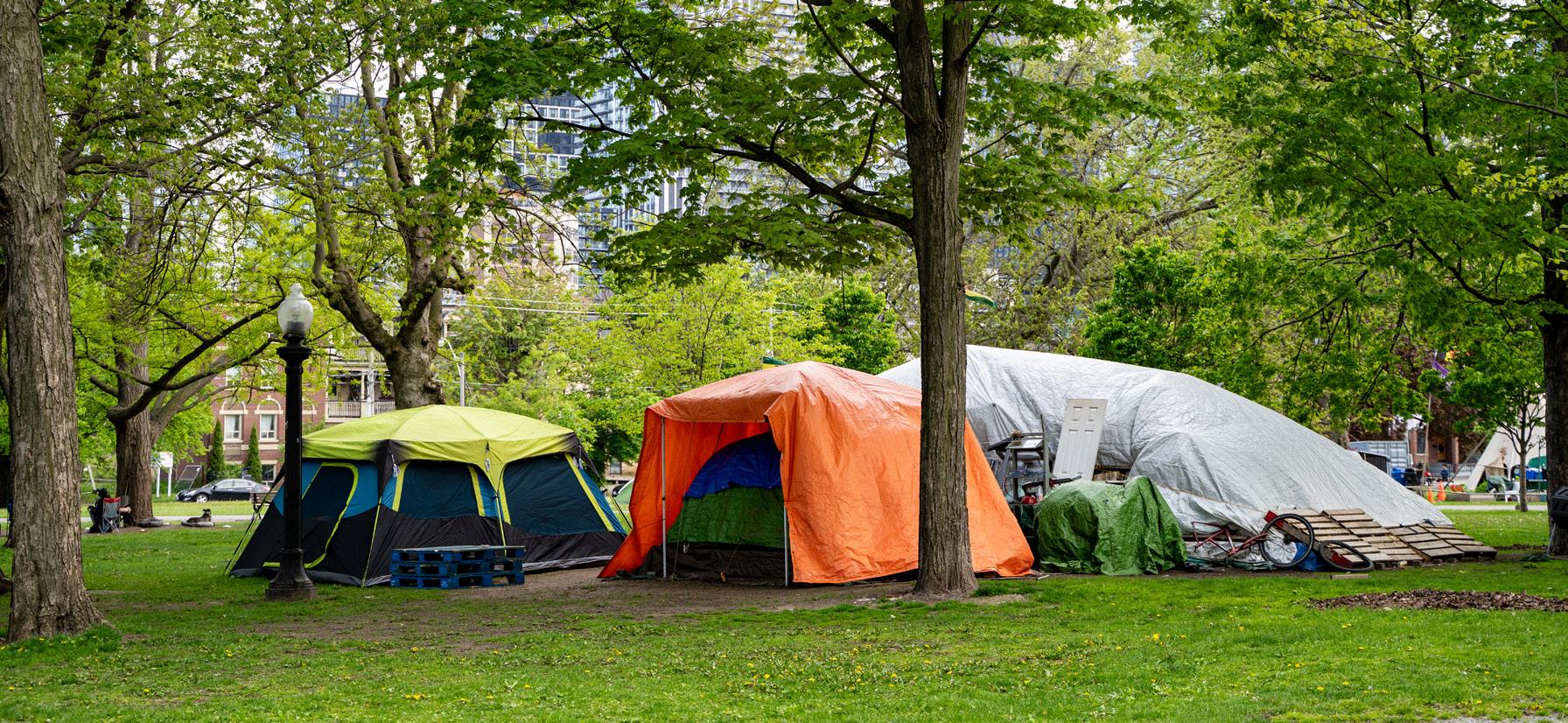
By Ken Epstein
Oakland’s Homeless Advocacy Working Group (HAWG) has issued a public statement to the elected and administrative officials strongly objecting to the city’s policy of homeless “sweeps,” which it says result in the “total and rapid elimination of homeless settlements without the provision of alternate accommodations and essential services.”
Instead of the current policy that places the city’s vulner-
able homeless residents under the “threat of violent displacement and inhumane encampment removals,” HAWG urges officials to take a more humane approach, making “vacant land and unused buildings available as livable accommodations for Oakland’s unhoused residents,” according to the statement.
To be livable, these alternate sites must provide “ease of access, sanitation, electrical power, access to health care, case man-

agement, housing navigation, education, and employment opportunities,” the statement said.
Defending the current policy, Oakland City Councilmember Ken Houston told the Oakland Post he supports the sweeps because that is clearly what Oakland residents want city government to do.
He said supporting homeless residents is the responsibility of Alameda County, not the City of
during the two times he was detained.
“Every day, when I hug and kiss my mother goodbye, I don’t know if I will be coming back to her,” he said.
“I am a survivor of the dehumanizing and racist for-profit immigration detention, where I was shackled from wrists, face, and legs, and sent to two cages that are located in Kern County where I was subjected to water-stained, torn undergarments, as well as dirty and ripped jail uniforms.
“I was forced to clean the dormitory that had a capacity of holding 100 people for $1 a day, with no proper equipment or training to work with dangerous cleaning chemicals.”

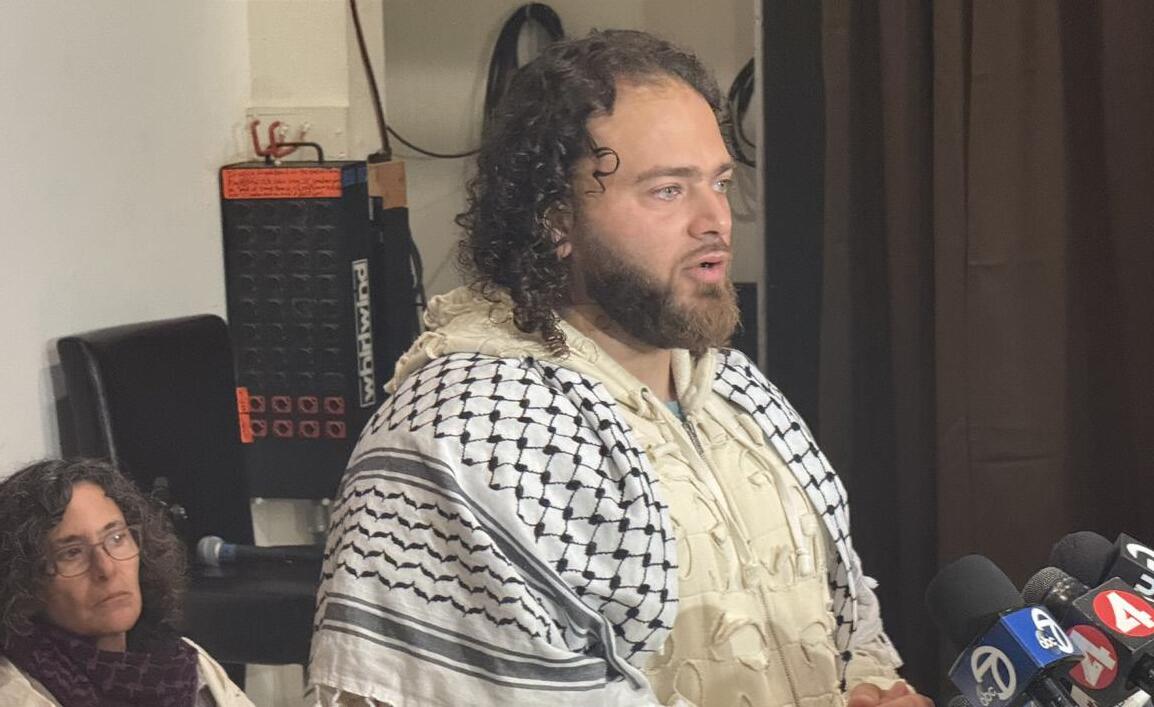
By Post Staff
On Wednesday, former U.S.
Vice President Kamala Harris announced that she will not seek the office of governor of California next year.
“Over the past six months, I have spent time reflecting on this moment in our nation’s history and the best way for me to continue fighting for the American people and advancing the values and ideals I hold dear,” Harris said in
By Ken Epstein
Community supporters rallied this week at a press conference to defend the Jerusalem Coffee House in Oakland, which is being sued by the U.S. Department of Justice in a civil rights lawsuit for antisemitic discrimination and related suits filed by two pro-Israel organizations.
“These past two years, the cafe has faced unprecedented harassment, and unprecedented repression – highly organized systemic repression by the government and by Zionist organizations. I really want to thank the community for standing in solidarity for us, acting as an infinite backbone,” said café
By Ken Epstein
Hundreds of Japanese Americans and their allies held a rally Saturday, July 19 to stand with Latino, Black, Asian, and other immigrant communities to oppose the potential reopening of a shuttered federal prison in Dublin, CA as an Immigration and Customs Enforcement (ICE) detention center.
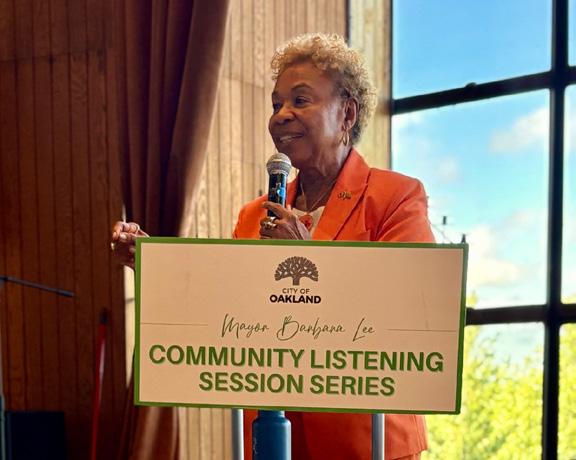
Special to the Post
Oakland Mayor Barbara Lee held her fifth community listening session Wednesday evening at Skyline Community Church, bringing together District 6 resi-
Demonstrators, who gathered at Don Biddle Community Park in Dublin, held and posters and handmade signs. Some of which read “Keep ICE out of Dublin” and “Hands off our immigrant neighbors.”
Speaking at the rally, Jose Ruben Hernandez, a Freedom Campaign coordinator from the Interfaith Movement for Integrity, described what happened to him
The rally was organized by Tsuru for Solidarity, the ICE Out of Dublin Coalition, several labor unions, and other organizations.
Tsuru for Solidarity is a Japanese American social justice group that organized the rally in solidarity with immigrant communities to protest the opening of detention centers in Northern California, especially focusing on the former
By Magaly Muñoz
With just over six months into Donald Trump’s second presidency, his promise of arresting and deporting millions of immigrants is slowly coming to fruition, data shows.
The Data Deportation Project, a group started by lawyers and professors in California, has published datasets accumulated from multiple organizations on arrests, detainments, encounters, and removals of people in the U.S by immigration enforcement as early as September 2023.
According to an analysis by the Post, arrests from immigration enforcement in California’s San Francisco Area of Responsibility (AOR) was 1.5 times higher in the month of June (563 arrests) than in the first 30 days of Trump’s presidency (364 arrests) in the beginning of the year.
In the first six months of the year, immigration officers have arrested just over 2,000 people in the same AOR, double what the last six months of 2024 data shows (1,008 arrests), according to the Data Deportation Project.
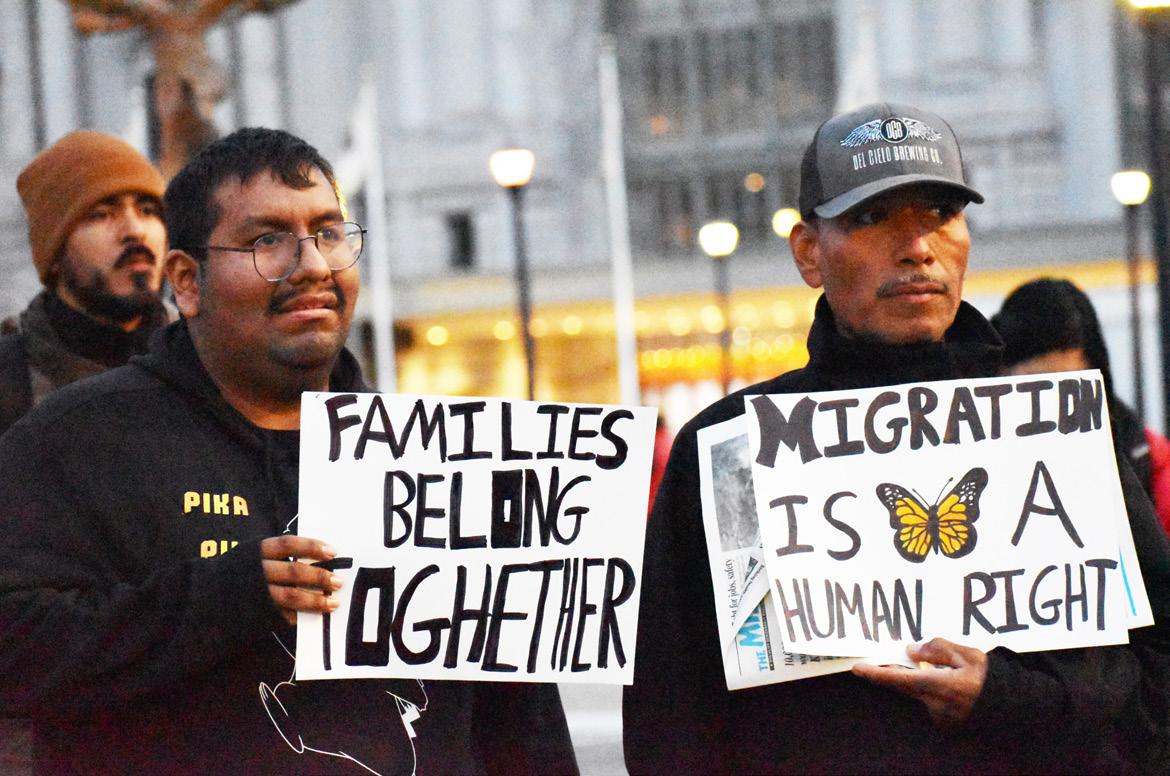
Across the state and country, many arrests and raids have been reported in communities with heavy immigrant presence. Over 56,000 arrests have been made nationally, according to TRAC Immigration.
Locally, several individuals have been detained by Immigration and Customs Enforcement (ICE) in San Francisco at immigration court hearings, particularly in the last three months.
Trump has made several executive orders and other actions against immigration since
he entered office in late January, most of which have been taken to the courts by state litigation. Orders and actions include ending birthright citizenship, declaring a national emergency at the southern border, ending the Customs and Border Protection (CBP) app that allowed migrants to schedule asylum appointments, and enactment of the Laken Riley Act, which allows law enforcement to detain undocumented immigrants who commit minor crimes.
But arrests are not only being made for those with criminal convictions.
dents and city leadership for a dialogue on community safety, beautification, and economic prosperity. The session, part of Lee’s One Oakland initiative, featured Council President Kevin Jenkins, Councilmember Rowena Brown, Police Chief Floyd Mitchell, Fire Chief Damon Covington, Violence Prevention Chief Dr. Holly Joshi, Transportation Director Josh Rowan, and Economic Development Director Ashleigh Kanat.
During the 90-minute forum, residents raised concerns about Oakland’s fiscal recovery, crime
reduction strategies, illegal dumping, housing insurance issues, and city governance. Topics ranged from stalled developments like the Coliseum project to the effectiveness of emergency response programs and the city’s commitment to environmental goals. Rev. Laurie Manning of Skyline Community Church moderated the structured discussion, which included both pre-submitted and live audience questions from neighborhood advocates, civic leaders, and small business owners.
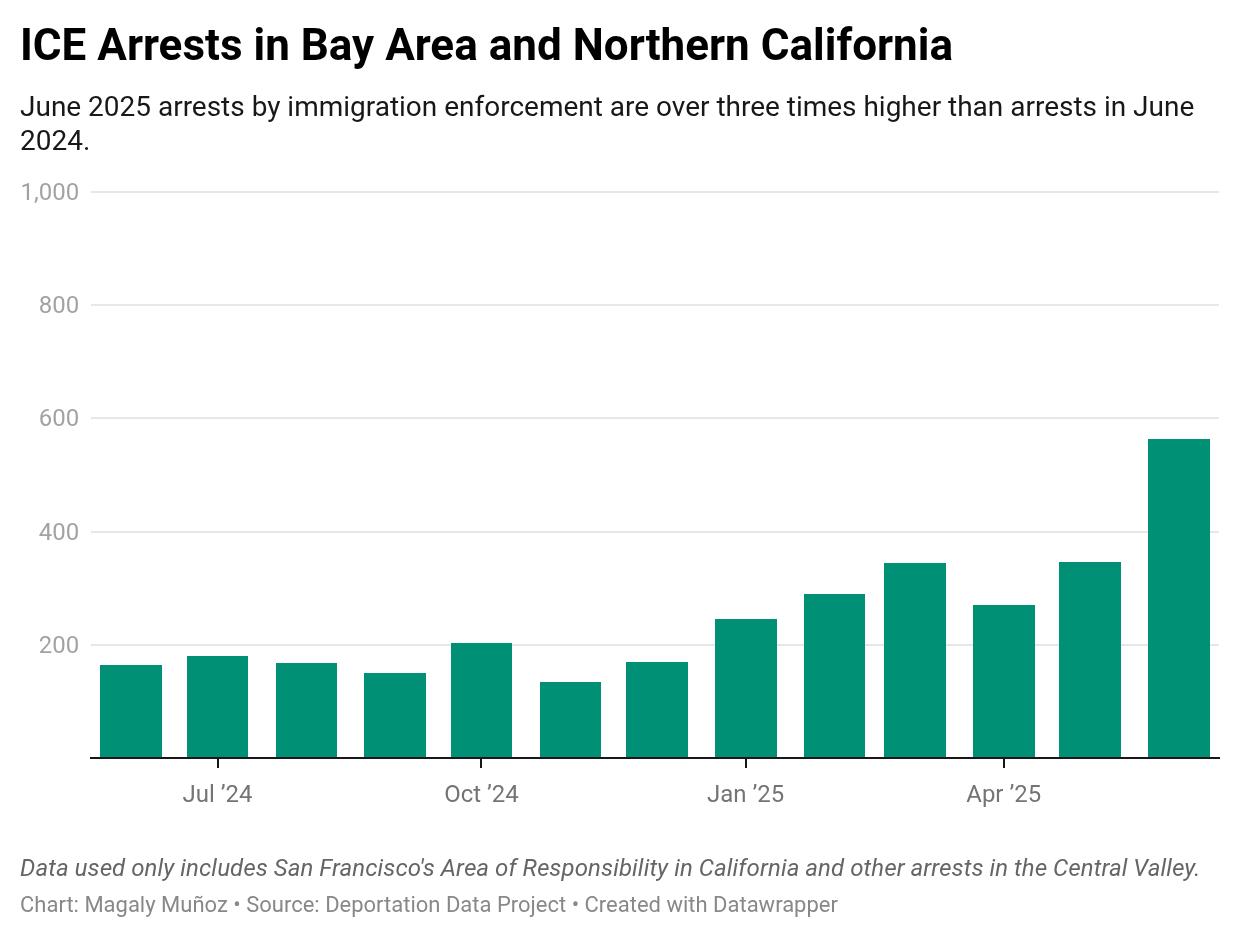
In June 2024, 137 people with criminal convictions were arested and 24 for other immigration violations. But last month, 251 arrests with criminal convictions and 241 arrests with other immigration violations were made by ICE and other agencies.
The arrests with non-criminal actions increased 10 times that of only a year

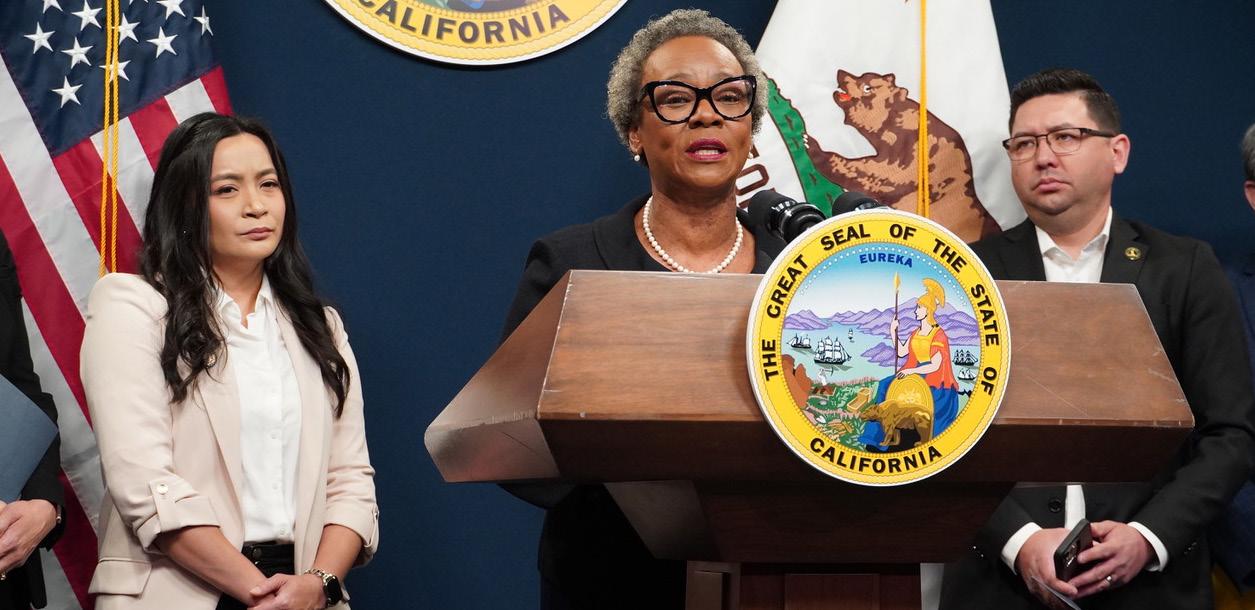
By Antonio Ray Harvey California Black Media
district that includes Inglewood and Gardena.
By Edward Henderson California Black Media
The California Legislature may soon settle a long-standing debate over Assembly Bill (AB) 1340, a contentious proposal that would let rideshare drivers unionize by relinquishing their independent contractor status.
Both sides of this issue have been in a standoff for over 10 years supporting different bills in the past and challenging them in the California Supreme Court.
Ever since Uber launched in 2009, there’s been an ongoing debate on whether rideshare drivers are independent contractors, as claimed by the apps, or bona fide employees, as claimed by labor advocates and workers.
Paving the way for AB 1340 was a decision surrounding Prop. 22 handed down by the California Supreme Court. Gig-economy companies had invested millions into Prop. 22. After voters approved it, labor advocates began contesting certain aspects of the legislation in court. They eventually scored a victory in the Castellanos v. State of California case that said the ballot measure couldn’t prevent future legislation to allow rideshare drivers to
unionize.
The path to AB 1340 was cleared by a key California Supreme Court decision involving Proposition 22. Gig-economy companies had invested millions to pass Prop. 22, but after voters approved it, labor advocates challenged parts of the measure in court. They ultimately won a major victory in Castellanos v. State of California, where the court ruled that Prop. 22 could not block future legislation allowing rideshare drivers to unionize.
AB 1340 seeks to build upon the Castellanos decision. The bill passed out of the Assembly in early June, the Senate Committee on Labor, Public Employment and Retirement later that same month.
Opposition to the bill has not backed down as Uber, Lyft, the California Chamber of Commerce and select rideshare drivers have made their voices heard on the issue. A core argument against the bill is that it contradicts the wishes of the voters who supported Proposition 22.
“Voters approved Prop 22 and the courts upheld the law, yet special interest groups are repeatedly trying to undermine our rights as drivers,” said Al Porche, a San Diego rideshare

By Daisha Williams
Nancy Johnson, a retired educator, and artist will be selling her handmade jewelry at the 10th Annual Black-Eyed Pea Festival for the first time.
The festival, a celebration of traditional African American music, food, and art, will take place on Sat. Sept. 13, at Marston Campbell Park and 17th and West streets and Oakland. It is free and open to the public.
A former elementary school teacher, she became a counselor at middle and high schools and community college. When she retired
from Merritt College, she began to spend most of her free time working on her art. Johnson first made jewelry for herself. Then, people would see her with her pieces and inquire about buying them, which led her to create pieces for sale. In making jewelry, she likes to experiment with different pieces, truly enjoying the creative process.
“When you look at my jewelry you’re going to see materials that I source in my travels, different combinations from travels that I put together,” Johnson said. She doesn’t have a traditional style
driver quoted in a Protect App-
Based Drivers & Services (PADS)
Coalition press release shared with California Black Media (CBM) after the Senate committee approved the bill.
“This bill is bad for drivers, bad for consumers and will threaten the personal information and privacy of millions of rideshare drivers like me,” Porche said. “The legislature should reject this policy.”
AB 1340 author, Assemblymember Buffy Wicks (D-Oakland) stated: “Millions of Californians depend on gig rideshare drivers to keep them moving, yet gig rideshare drivers have no seat at the table when decisions about their livelihoods are made. All workers deserve a fair shot in shaping their future with a voice on the job and the ability to bargain for better working conditions.”
It is now expected to move on to the Senate floor for debate and a vote. If both chambers pass the final version of the bill after any amendments, the bill goes to the Governor’s desk for his consideration.
If AB 1340 is signed into law, the earliest drivers could officially unionize would be Jan. 1, 2026.
Assemblymember Tina McKinnor (D-Inglewood), a member of the California Legislative Black Caucus (CLBC), won bipartisan support last week for her bill aimed at helping victims of racially motivated eminent domain — and their descendants — recover lost property.
On July 15, the Senate Judiciary Committee approved Assembly Bill (AB) 62 with a unanimous 13-0 vote.
The bill now heads to the Senate Standing Committee on Appropriations, where it is scheduled for a hearing at 10 a.m. on Aug. 18 at the State Capitol Swing Space Annex in Sacramento.
“AB 62 responds to these harms by authorizing local and state agencies to evaluate past eminent domain takings, and where inappropriate or unjustified takings are identified,” McKinnor told members of the Judiciary Committee during the hearing.
“This bill is about righting historical wrongs and creating a process to address and repair the damage still felt today,” she added.
McKinnor noted that AB 62 was drafted “in the spirit of Senate Bill (SB) 796,” a measure authored by former Sen. Steven Bradford, who represented an L.A. County

Gov. Gavin Newsom signed SB 796 into law in September 2021.
That bill played a key role in returning Bruce’s Beach — a property in Los Angeles County — to the descendants of Willa and Charles Bruce, the Black couple who owned the seaside resort before it was taken through eminent domain in 1924.
According to the bill’s language, AB 62 establishes a process for reviewing claims of racially motivated eminent domain via a designated agency’s Office of Legal Affairs. The legislation defines such takings as property seizures for public use without just compensation, motivated by the owner's race or ethnicity.
If a claim is confirmed, the office would certify the claimant’s right to the original property (if still held by a public entity), a comparable public asset, or monetary compensation.
The only two Republican members of the Senate Judiciary Committee —Sen. Roger Niello (R-Roseville) and Sen. Suzette Martinez-Valladares (R-Acton) — joined Democrats in supporting the bill.
Niello, the ranking Republican on the Judiciary Committee, says he supported AB 62 because it
doesn’t place the full burden of compensating victims on the state. It also holds local jurisdictions — where the wrongful eminent domain occurred — accountable.
In the Assembly, GOP lawmakers cast the only “no” votes against AB 62 when it was approved with a 57-4 margin. Those four holdouts were Alexandra Macedo (R-Tulare), Heather Hadwick (R-Alturas), Stan Ellis (R-Bakersfield), and Carl DaMaio (R-San Diego).
AB 62 is one of 16 bills in the CLBC’s “Road to Repair” legislative package, which seeks to deliver justice and equity for marginalized communities, focusing on reparative action and future protections.
Sen. Akilah Weber Pierson (DLa Mesa), chair of the CLBC and a member of the Senate Judiciary Committee, voted in favor of AB 62. Weber Pierson said she was pleased that her colleague Niello found common ground to make a formal proposal to the committee to consider the vote and to reach a solution acceptable to both parties.
“We love bipartisan support on our priority bills,” Weber Pierson said, referring to Niello’s support for the bill.
“It builds on the work that former Sen. Bradford had started,” Weber Pierson added.
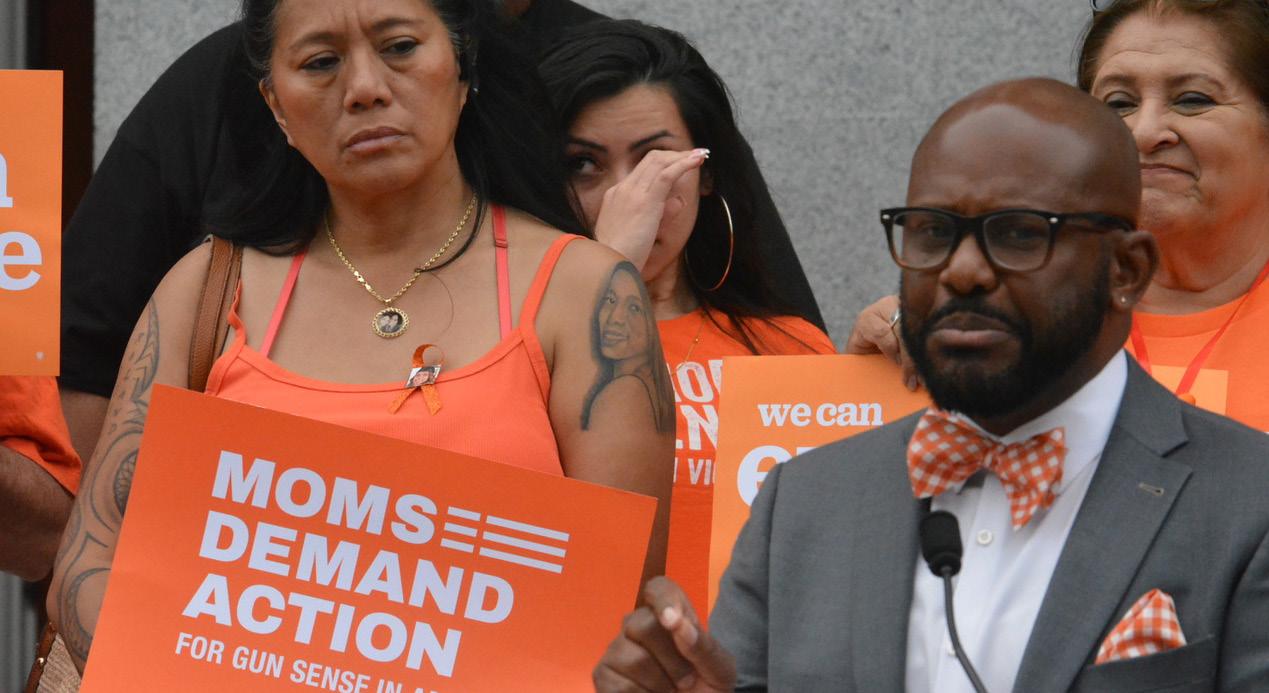
By Bo Tefu California Black Media
A federal appeals court on July 24 upheld a lower court’s decision blocking California’s background check law for ammunition buyers, ruling the requirement violates the Second Amendment.
The 9th U.S. Circuit Court of Appeals said the 2016 voter-approved measure infringes on gun owners’ constitutional rights by requiring repeated background checks before buying bullets. In the 2-1 ruling, Judge Sandra Ikuta wrote that the law “meaningfully constrains the right to keep operable arms” by making it harder to obtain ammunition.
“The right to keep and bear arms incorporates the right to operate them, which requires ammunition,” Ikuta stated.
The decision relied heavily on
a 2022 U.S. Supreme Court ruling — New York State Rifle & Pistol Association v. Bruen — that set a new standard for evaluating gun laws. That ruling requires firearm regulations to align with the nation’s historical traditions. California officials argued the ammo law was similar to loyalty oaths used in the post-Civil War era, but the judges were not convinced.
“These laws are not relevant,” Ikuta wrote.
Judge Jay Bybee dissented, arguing the checks are low-cost, quick and have been effective since California began enforcing them in 2019.
“The vast majority of checks cost one dollar and impose less than one minute of delay,” Bybee wrote. “The majority has broken with our precedent and flouted the
By Antonio Ray Harvey California Black Media
On July 15, the Senate Judiciary Committee voted to advance legislation that would expand restrictions on manufacturing and possessing firearms — specifically “ghost guns.”
Assembly Bill 1263, “Firearms: Ghost Guns,” which was introduced by Assemblymember Mike Gipson (D-Carson), was approved with an 11-1 vote by the committee. It has now moved to the Senate Standing Committee on Appropriations for consideration.
“When you talk about ghost guns, again, on the television, when you talk about mass shootings, a lot of those times a ghost gun is involved,” Gipson told the commit-
tee. “Ghost guns are untraceable (and) have no serial numbers. We can’t live in a society where these guns are not traceable. Law enforcement and the Department of Justice need to know who these guns are registered to.”
According to Every Town For Gun Safety, a ghost gun is categorized as a privately manufactured firearm without a serial number, making it difficult to detect. The weapons are often made from kits or unfinished parts, such as 80% lower receivers or 3D-printed components.
The Bureau of Alcohol, Tobacco, Firearms and Explosives (ATF) estimated that nearly 71,000 alleged privately made ghost guns were recovered by law enforcement be-
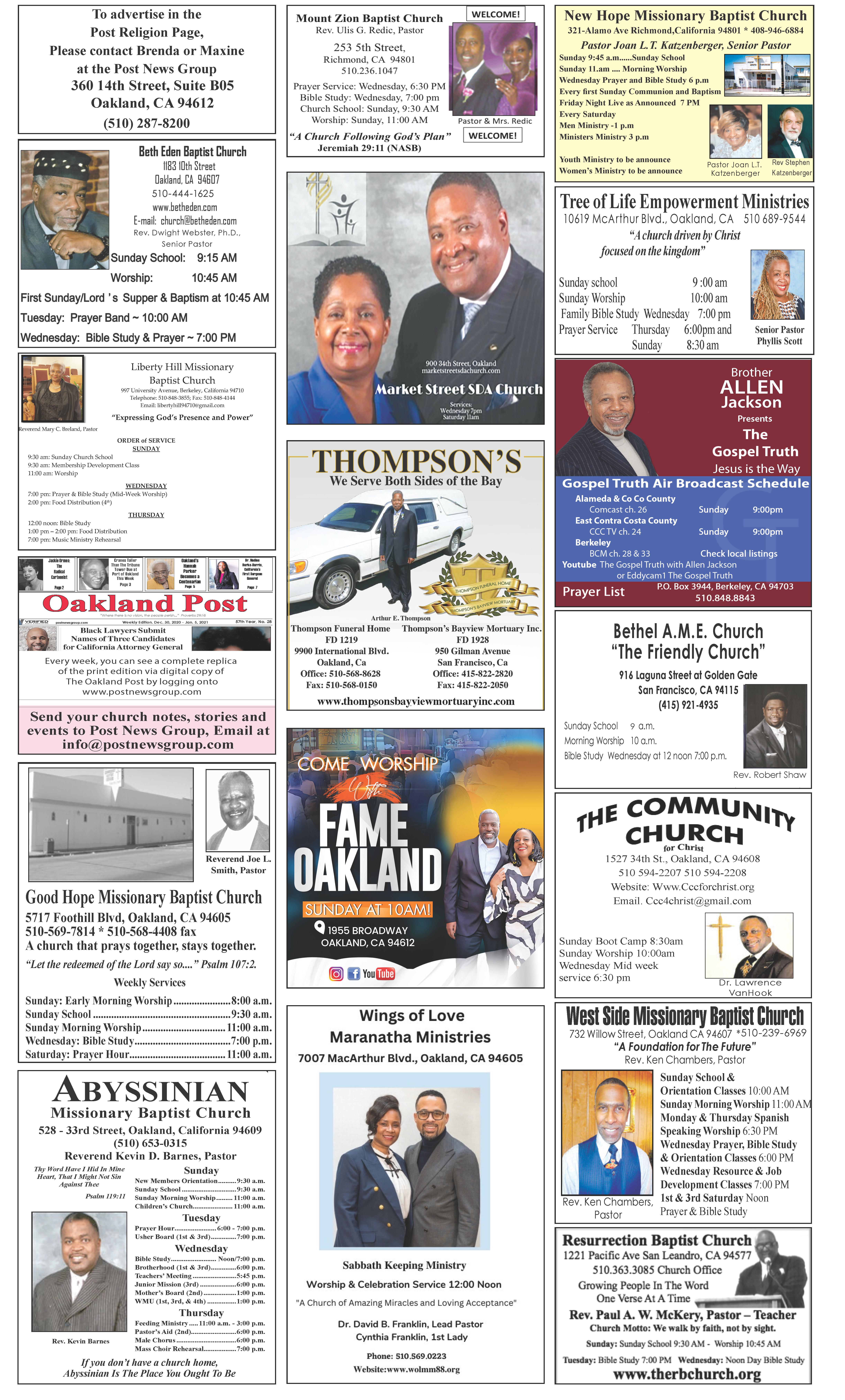
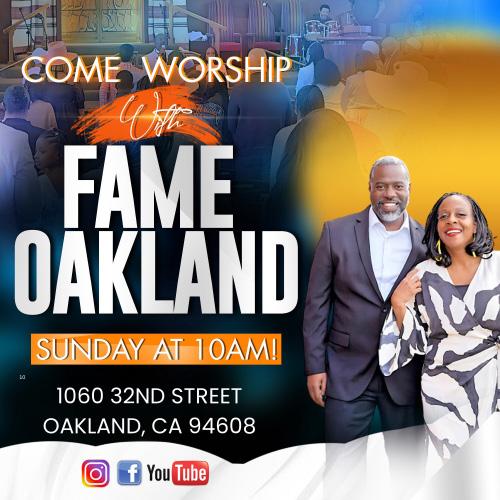

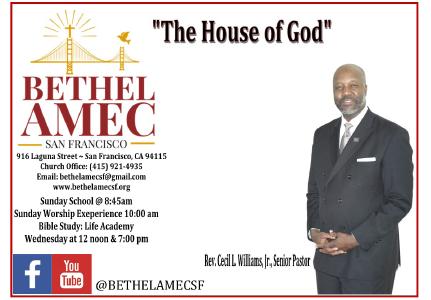

By Terri Schlichenmeyer
The Bookworm Sez
Author: Alua Arthur, Pub-
lisher: c.2025, Mariner, Price: $28.99, Page Count: 256 pages
There is no need to pack a big suitcase.
No more worrying about tickets or TSA, the nearest gas station, tiny bottles of shampoo, no journal, no favorite t-shirt. You’ll say one last goodbye on this final journey and you’ll be gone, but in “Briefly Perfectly Human” by Alua Arthur, as you did in living, you may need support in dying.
Born in Ghana, raised by parents who demanded excellence, Arthur chose to go to study law after she graduated from high school. But it wasn’t really a choice. In a way: pursuing a law degree was a default for her, and it didn’t make her happy. After she
started working for Legal Aid on behalf of poor clients, a career in law actually made her sad. It was so difficult for Arthur to avoid getting too involved with her clients, and she struggled. She eventually came to understand that she wanted more than anything was to “be of service” to people somehow. When her brother-in-law was diagnosed with cancer, she helped take care of him and things began to fall into place. She says he was “the first person I doula’d before knowing … what I was supposed to be doing.”
Following Peter’s death and her “aha!” moment, Arthur received formal death doula training, where she learned “not to conflate others’ experiences with [her] own,” how to gently discover a dying person’s wishes, and
erts is excerpted from the MacArthur Fellows web site.
A graduate of Yale University with a law degree from Harvard, Dorothy Roberts is a legal scholar and public policy researcher exposing racial inequities embedded within health and social service systems.
how to listen. She does in-person visits or phone calls; she can’t dispense medicine or medical advice. She can only talk, and that’s often all an ill or dying person needs. It’s a solution, Arthur says, that helps “meet a client where they are” but being a death doula isn’t just for those who are dying.
Sine 2012, she has been a professor of Law and Sociology, and on the faculty in the department of Africana Studies at the University of Pennsylvania.
“Sometimes,” she says, “all we need is a little time, if we’ve got it…. And if you’re the person who can’t accept that another will die, we will hold you when you finally do.”
Roberts’s work encompasses reproductive health, bioethics, and child welfare. She sheds light on systemic inequities, amplifies the voices of those directly affected, and boldly calls for wholesale transformation of existing systems.
Roberts’s early work focused on Black women’s reproductive rights and their fight for reproductive justice. In “Killing the Black
So, here’s a surprise for you: “Briefly Perfectly Human” may not be the book you want today. It touches upon a painful subject. There’s no blatant advice here, no quizzes or checklists. You’ll find comfort if you look hard enough, but it’s not overt.
Instead – and maybe you do need it today – this book is mostly about being wonderfully, sparklingly alive. Joyful, even. Arthur says, “I’m only here for a small amount of time,” and that, in fact, should tell you everything you’d want to know about this book.
And yet, it has dark moments.
Arthur writes about specific clients and how she helped them and their families. There’s a good bit biography here, where she shares her own struggles with depression and mental health. Beware: she’s an advocate of psychotropic substances and she’s sometimes profane. She’s also unabashedly honest, and that’s refreshing.
Readers looking for advice or succor must read between the lines to find it here, but you won’t mind. “Briefly Perfectly Human” reminds you to live each day as if it’s your last, and that, packs a punch.
examine the treatment of children of color in the U.S. child welfare system.
state intervention and the results of
ed with Child Protective Services tions regularly punish the effects
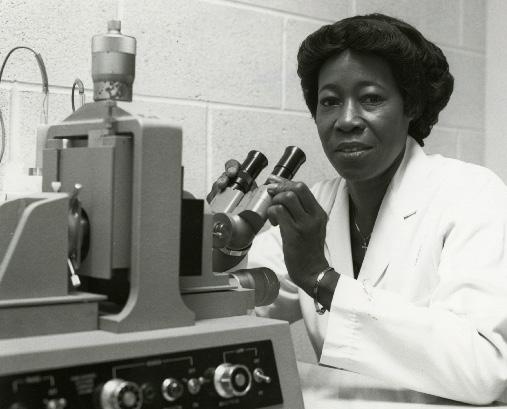
income, and children from these families are much more likely than white children to be removed from their families after CPS referral.
of norms.
advantages of a great university, contact with great minds, and the use of all modern equipment. Was I willing to forget these and go back to a school in the heart of Alabama, where I wouldn’t even have a Bunsen burner?” He chose to return to Alabama and teach at Tuskegee Institute.
She also shows that blaming marginalized individuals for structural problems, while ignoring the historical roots of economic and social inequality, fails families and communities.
Brady devoted a lot of his life to building educational opportunities for Black students. He developed the first graduate program for Blacks in chemistry as well as chemistry departments at several historically Black Colleges and Universities (HBCUs).
Roberts argues that the engrained oppressive features of the current system render it beyond repair. She calls for creating an entirely new approach focused on supporting families rather than punishing them.
By Tamara Shiloh
According to researchers, the first African American to earn a PhD in chemistry (1916) was Saint Elmo Brady. He studied at
After nearly two decades of research and advocacy work alongside parents, social workers, family defense lawyers, and organizations, Roberts has concluded that the current child welfare system is in fact a system of family policing with alarmingly unequal practices and outcomes. Her 2001 book, “Shattered Bonds: The Color of Child Welfare,” details the outsized role that race and class play in determining who is subject to
In “Torn Apart: How the Child Welfare System Destroys Black Families—and How Abolition Can Build a Safer World (2022),”
Roberts traces the historical, cultural, and political forces driving the racial and class imbalance in child welfare interventions.
Fisk University and later at the University of Illinois. This qualified him for several positions, yet he faced a stark choice.
Brady described himself as a young man who had “all of the
These include stereotypes about Black parents as negligent, devaluation of Black family bonds, and stigmatization of parenting practices that fall outside a narrow set
Among those benefitting from the path Brady blazed at Tuskegee was Bettye Washington Greene (1935–1995). She is believed to be the first African American female chemist employed to work in a professional position at the Dow Chemical Company in Midland, Mich. She earned her Bachelor of Science from Tuskegee (1955) and her PhD in physical chemistry from Wayne State University (1962).
Her support for dismantling the current system of child welfare is unsettling to some, but her provocation inspires many to think more critically about its poor track record and harmful design.
By uncovering the complex forces underlying social systems and institutions, and uplifting the experiences of people caught up in them, Roberts creates opportunities to imagine and build more equitable and responsive ways to ensure child and family safety.
Greene married veteran air force captain William Miller





By Bo Tefu California Black Media
Gov. Gavin Newsom is bringing California’s tech talent into state government operations with a new initiative aimed at making government more efficient and effective for all Californians.
On July 14, Newsom announced the California Breakthrough Project, a task force made up of top tech executives from companies such as Snap Inc., In-
Bettye Washington Greene ... Continued from page 4
Greene the year she graduated from Tuskegee. The couple had three children.
Her doctoral dissertation, Determination of Particle Size Distributions in Emulsions by Light Scattering, was published as a book ten years later (1965).
The Fort Worth, Texas–born Greene (then Bettye Washington) joined Dow in 1965. She worked in the firm’s E.C. Britton Research Laboratory, specializing in latex products. She was the first Black employee hired in a profes-
stacart, Ripple, and Coinbase. The group met for the first time in June and will work directly with state leaders and front-line employees to identify inefficiencies, modernize systems, and improve public services.
“Our state is uniquely positioned to bring the best and brightest together to advance our work,” said Newsom. “We will not shy away from progress, but embrace it for the benefit of all Californians,
sional capacity. Her research for the company was focused on colloidal chemistry, the chemistry of latex, including the interaction between latex and paper. Greene served as a consultant on polymers issues in Dow’s Saran Research Laboratory. Members of the Styrene Butadiene Latex group often utilized her expertise and knowledge. In 1970, she was promoted to the position of senior research chemist, and 1975, to senior research specialist. During her tenure at Dow, Greene obtained several patents for various modifications of latex.
Included were latex-based adhesive prepared by emulsion polymerization; composite sheet pre-
including our state workforce.”
The Governor also signed an executive order requiring every state agency to implement new efficiency measures. The order directs agencies to streamline hiring, contracts and procurement, while encouraging faster, more effective public service delivery.
The project builds on Newsom’s earlier work to modernize state government. Since 2019, California has upgraded the DMV, used AI and drone technology to help fight wildfires, and implemented digital tools to improve traffic and public safety. Under a new platform called Engaged California, state workers will now be invited to help shape future improvements through a digital democracy platform.
The California Breakthrough Project will maintain public transparency and ethical safeguards. It will also explore how artificial intelligence can be safely and re-
Continued on page 7
pared with stable latexes containing phosphorus surface groups; stable latexes containing phosphorus surface groups; and novel adhesives in the form of composite latex polymer sheets with phosphorus surface groups.
Active in community service in Midland, Greene was a charter member of the Midland Alumni Chapter of Delta Sigma Theta Sorority, Inc. a national public service organization founded by African American women. She was also elected to Sigma Xi, the Scientific Research Society.
Best remembered as a pioneering Black woman scientist, Greene spent her entire career as a research chemist with Dow. She retired from Dow in 1990.
CITY OF SAN LEANDRO STATE OF CALIFORNIA
ENGINEERING AND TRANSPORTATION DEPARTMENT
NOTICE TO BIDDERS FOR ANNUAL SIDEWALK REPAIR PROGRAM 2024-25 PROJECT NO. 2025.0060 | BID NO. 25-26.002
1. BID OPENING: The bidder shall complete the “Proposal to the City of San Leandro” form contained in the Contract Book. The proposal shall be submitted in its entirety. Incomplete proposals will be considered non-responsive. Sealed bids containing the completed Proposal Section subject to the conditions named herein and in the specifications for Annual Sidewalk Repair Program 2024-25 Project No. 2025.0060, addressed to the City of San Leandro will be received at City Hall, 835 East 14th Street, 2nd Floor San Leandro at the office of the City Clerk at up to 3:00 p.m. on Wednesday, August 27, 2025, at which time they will be publicly opened and read.
2. WORK DESCRIPTION: The work to be done consists of removal and replacement of concrete sidewalk, curb and gutter, and construction of driveways, and doing all appurtenant work in place and ready for use, all as shown on the plans and described in the specifications with the title indicated in Paragraph 1 above, and on file in the office of the City Engineer. Reference to said plans and specifications is hereby made for further particulars.
3. OBTAINING THE PROJECT PLANS AND CONTRACT BOOK: The project plans and Contract Book may be obtained free of charge from the City’s website at: https://www.sanleandro.org/Bids.aspx Bidders who download the plans are encouraged to contact the City of San Leandro Engineering and Transportation Department at 510-577-3428 to be placed on the project planholder’s list to receive courtesy notifications of addenda and other project information. Project addenda, if any, will be posted on the website. A bidder who fails to address all project addenda in its proposal may be deemed non-responsive.
Bidders may also purchase the Project Plans and Contract Book from East Bay Blueprint & Supply Co., at 1745 14th Street, Oakland, CA 94606; Phone Number: (510) 261-2990 or email: ebbp@ eastbayblueprint.com.
4. PRE-BID CONFERENCE: All bidders are strongly encouraged to attend non-mandatory one of two virtual pre-bid conference and sign the attendance sheet. Pre-bid conferences will be held as follows: Pre-bid meetings will be held via zoom. Pre-bid conferences will be held for this project as follows:
• August 13, 2025, at 1:00 pm. This meeting will be cast on Zoom: the virtual meeting can be accessed by internet as follows: Wednesday, August 13, 2025, at 1:00 pm Meeting ID: 869 5731 9181
Passcode: 034911
Zoomlink: https://sanleandro-org.zoom.us/j/86957319181?pwd=IdMvqFR9cGsIrk2mpCvzUjq AUisfcK.1
• August 14th, 2025, at 10:00 am. This meeting will be cast on Zoom: the virtual meeting can be accessed by internet as follows: Thursday, August 14, 2023, at 10:00 am.
Meeting ID: 831 6950 2295
Passcode: 990863
Zoomlink: https://sanleandro-org.zoom.us/j/83169502295?pwd=vtr5HBU2hOI2bL3wB3ttrwj QJkj0UH.1
A bidder who fails to attend one of two pre-bid conference will be held responsible for any information that could have been reasonably deduced from said attendance.
Questions regarding the plans and specifications may be submitted in writing to the project engineer until 5:00 p.m. five (5) days before, excluding Saturdays, Sundays and Holidays, bids must be received by the City. The City will not respond to oral questions outside of the pre-bid conference. The response, if any, will be by written addendum only. Oral responses do not constitute a revision to these plans or specifications.
5. SAN LEANDRO BUSINESS PREFERENCE AND PARTICIPATION GOALS: The work performed under this contract is subject to Section 1-6-225 of the San Leandro Municipal Code regarding local business preference and participation. A list of companies that hold a San Leandro business license is located on the City webpage under the finance department, here: https://sanleandro.hdlgov.com/Search/ Index/BusinessLicense
6. SAN LEANDRO COMMUNITY WORKFORCE AGREEMENT: The work performed under this contract is not subject to the Community Workforce Agreement adopted by City Council Resolution 2015-104. Contractors’ attention is directed to Section 10. Kelly B. Clancy City Clerk
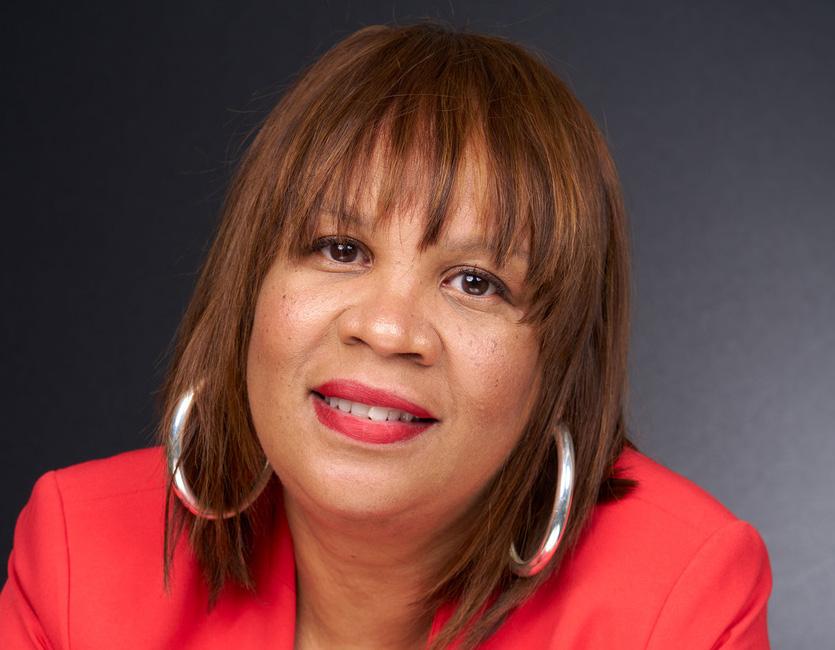
Kellie Todd Griffin Special to California Black Media Partners
The voice of the oppressed has never been a whisper. It has always been present — loud, persistent, and demanding to be heard.
The truth is, far too often, it has been ignored. That voice is echoing across California today, carried by Black communities who are calling out generations of systemic harm.
Being polite isn’t working anymore. California is often hailed as a liberal, progressive beacon — but for many Black Californians, that image doesn’t reflect reality. Beneath the glossy politics, our everyday experience tells a harsher truth: we are struggling. Deeply. Consistently.
Black Californians are more likely to live in poverty, be unemployed, be unhoused, and die prematurely from preventable health conditions. We are paid less, live shorter lives, and carry heavier bur-
Continued from page 6
sponsibly used in public services. The group includes leaders such as Ron Conway of SV Angel, Asheesh Birla, and Chris Larsen of Ripple, among others.
California has also partnered with tech company NVIDIA on an AI training and innovation program to prepare workers and students for the future.
Newsom said the goal is to
Continued from page 2
Supreme Court’s guidance.”
According to the California Department of Justice, 89% of ammo purchases are approved in about three minutes. About 10% are rejected due to fixable technical issues, and fewer than 1% are denied for legal reasons.
It’s unclear if the decision will immediately lift the state’s six-
Continued from page 2
that she holds herself to, instead engaging in what she calls “bead soup.”
She throws a bunch of beads, with many different colors down and then randomly selects the ones that will go on a bracelet or necklace. Her customers love the pieces done in this style.
Johnson has traveled to Africa, Bali, Australia, and Korea. In the 1990s she traveled to Senegal, Ivory Coast, Gambia, Morocco and South Africa. It was this trip that inspired her to start creating jewelry using materials from her motherland. She also uses precious stones with different healing properties including rubies, turquoise, trade beads, agate, cor-
right – almost 200 more years.
Our children are suspended at higher rates, underrepresented in gifted programs, and receive fewer mental health supports. Only 34% of Black households own their homes compared to 64% of White households. Black workers are overrepresented in essential but underpaid jobs —health care support, public transportation and retail.
Black women are three to four times more likely to die from pregnancy-related complications than White women in this state. And our youth — the ones we are trying desperately to protect and uplift — experience the highest suicide rates among their peers.
The voices rising in response are not unruly. They are righteous. They are not disruptive. They are demanding accountability.
A radical shift is needed. Not tomorrow. Not when it’s politically convenient. Now.

a place he wasn’t used to seeing them: on stage in the light.
In Winnipeg, there are 91,000 Filipinos, the largest minority.
One cab driver I talked to was from Eritrea. We talked about Eritrean food. He misses his country but loves Canada so much he’s been there 10 years.
I talked to another security guard, a 20-year-old Indian girl, we’ll call Sheera.
She had big dreams.
Sheera came to Canada to study to be a doctor.
dens — all while being expected to stay quiet, stay patient, and stay hopeful.
We are sick and tired of being sick and tired — to echo the words of Queen Fannie Lou Hamer.
California’s own state-commissioned Reparations Report spans over 1,100 pages and meticulously details how the state has inflicted generational harm on its Black residents — from redlining and housing discrimination to unjust policing, mass incarceration, inequitable education, and health disparities. It is not new information to us. But it is now documented, undeniable, and urgent.
More than 2 million Black people live in California. Yet in cities like Los Angeles and Oakland, we make up the largest portion of the unhoused population despite being among the smallest racial groups. Black women in California earn just $.61 for every dollar a White man earns. It will take until 2227 to close that gap. Yes, you read that
move beyond slow, outdated systems and toward a more agile, tech-forward approach to governance.
“This is about creating real results for real people,” he said. “We’re focused on making government work better — because Californians deserve nothing less.”
State officials say the initiative reflects California’s broader push to modernize government operations and deliver faster, more effective public services through innovation, technology, and collaboration with industry leaders.
year-old restrictions. State officials haven’t yet said if they will appeal the ruling.
Gun control advocates criticized the decision. Janet Carter of Everytown Law said the law helped block 191 armed and prohibited individuals from buying ammo in 2024 alone.
Gun rights supporters celebrated the ruling, calling it an appropriate defense of the Second Amendment rights of law-abiding citizens.
al, carnelian and amethyst. She also works with amber and Ghanaian wax-caste beads. Now, she buys beads everywhere she travels.
In addition to jewelry, she also works with ink and is a talented drawer. Recently she has been experimenting with drawing on ceramic pots and has created some pieces that she is very proud of.
For more information, look up Johnson’s work on Etsy. The Black-Eyed Pea Festival will be from 11 a.m. to 6 p.m., Sept. 13, at Marston Campbell Park featuring traditional music by MJ’s Brass Boppers, Andre Thierry’s Accordion Magic, Piwai and Mystic Gong; food by CocoBreeze and Ate o’Clock; Indigo crafts with BushMama, and more. For more information, go to www.oakbepfest.com or call 510-332-5851.
This shift must be reflected in public policy, in how budgets are crafted, and in how decisions are made at every level — state, county, city, and neighborhood.
To paraphrase, the Rev. Dr. Martin Luther King, Jr. an uprising is the language of the unheard.
The time is now for you to hear us!
This commentary was written in response to the release of State of Black Los Angeles Report and the ongoing California Legislative Black Caucus reparations efforts. About the Author
Kellie Todd Griffin is the President & CEO of the California Black Women’s Collective Empowerment Institute. With a deep commitment to equity and justice, she champions initiatives that amplify the voices and influence of Black women across California. Known for her strategic insight and passion for community empowerment, Kellie is a driving force in fostering systemic change and collective progress.
By Emil Guillermo
You don’t realize how much America has changed until you leave it.
This summer, I’m on the road doing my live comedy show.
On the plane, I wore a mask. Most people (99%) didn’t.
Most people see a mask these days and think you’re ICE.
Just one of the things I noticed while in Canada as an American trying to make sense of our country from afar.
In the college residency hall where I stayed, there was a sign that said “Anti-Racism is not a gray area.”
Not in America.
In our country, racism is a gray area. And fighting racism is not allowed. Not when the president and MAGA Republicans are against the Voting Rights Act, aspects of the Civil Rights Act, and Immigration. All policies of LBJ’s “Great Society.”
Go to Canada and see people genuinely working toward equity for people of color.
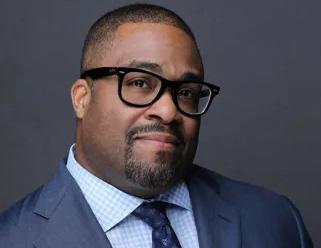
By Bo Tefu California Black Media
The NAACP California-Hawaii State Conference received three national honors at the 116th NAACP National Convention held last week in North Carolina, recognizing the group’s leadership in civil rights advocacy and community outreaach.
The conference was awarded the prestigious Willis Edwards Award, which celebrates units that have made significant contributions to improving equality, inclusion, and quality of life for LGBTQIA+ individuals.
In addition to the Edwards Award, the California-Hawaii State Conference also took home first place in the Publications category and third place in the Programs category of the NAACP’s Thalheimer Award competition, which highlights excellence in programming and operations.
“These awards are a testament to the powerful work happening across our California-Hawaii State Conference,” said Rick L. Callender, president of the NAACP state conference. “At a time when our communities are once again under attack by hate and bigotry, it is more urgent than ever to stand ffin solidarity and create space for inclusive justice.”
Elizabeth Kamya, chair of the state conference’s LGBTQIA+ Committee, emphasized the importance of intersectional advocacy.
“True liberation must include every part of who we are — our Blackness, our queerness, our humanity,” she said. “We will continue to build spaces where our communities are seen, protected, and uplifted.”
The Willis Edwards Award is named after a longtime NAACP leader who played a key role in expanding the organization’s LGBTQIA+ advocacy. Edwards was known for his work in promoting unity and advancing rights for all people regardless of race, gender identity, or sexual orientation.
The Thalheimer Awards are considered the NAACP’s highest honors for local branches and state conferences. They are given to organizations that demonstrate strong programs, communications, and leadership that reflect the core values of the NAACP.
The California-Hawaii State Conference says it plans to build on this recognition by continuing to push for justice, equity, and inclusion throughout the region.
In America, Native Americans are just one percent of the people. We treat them like they don’t exist.
In Canada, everywhere you go, you see the acknowledgment of First Nation people.
In America, we’re still wrestling with personal pronouns.
In the U.S., the Trump administration wants the name Redskins restored in pro sports. It wants all DEI to be reversed, erased. At Harvard recently, all DEI offices were renamed in a concession to the White House. And the school is shamefully considering paying up to $500 million to the government for its sins of academic freedom.
Sounds ridiculous. But it’s happening.
The biggest thing you notice in Canada while walking around is the diversity.
But it’s not perfect.
One Hispanic man, who was working my arts event as a security guard, stopped me when I was hawking my show. He compared his name to mine and said, “Me.
Like you.”
I was another brown face in
“I’m going to be successful,” she said. “In 15 years, I want to build a charitable hospital that has all the facilities, but it’s offered to people for free, only to those people who can’t afford it, but it will be world class, like what the rich get.”
Imagine that. A Canadian dream.
Sheera was a reminder of the good immigrants who come to serve and help. Not the criminal predators that the White House portrays immigrants to be. They’re doing something right in Canada. In America, we harass immigrants with big dreams, because the administration sees all of them as criminals — even the innocent ones. We round them up and send them to third countries. That’s the America that has turned from a swamp into the crud — a CRUD, a cruel and unusual democracy.
But they did something right. They let me back in.
About the Author Emil Guillermo is an awardwinning journalist, commentator, and comic monologist. See his micro-talk show on Youtube.com/@ emilamok1 More at www.amok. com

Special to The Post Summertime...and the livin’ is easy!
Especially if you plan to spend it at Fayeth Gardens for the Fourth Annual Groovin’ at the Grove Labor Day Concert Celebration on Aug. 31, at Fayeth Gardens’ beautiful 20-acre retreat in Calaveras County Wine Country.
Enjoy the live Jazz of the David Hardiman Sextet, featuring vocalist D. Anthony; the Classic Rock of Steve Eckert’s 5150 Band and the tight grooves of DJ KG as he spins everything from your requests to R&B favorites.
He will be joined by Bay Area MC and KCSM Jazz 91 veteran announcer, Clifford Brown Jr. from 12 noon-5 p.m., dance, eat, drink, shop and make new friends under the breeze of the 100-tree
tween the years 2016 and 2022. Several organizations argue that AB 1263 violates the right to privately build firearms and infringes upon the industry’s Second Amendment rights. Adam Wilson, who represents Gun Owners of America, told the committee and Gipson that the bill is unconstitutional and
walnut grove! Bring lawn chairs, water bottles, sun brims and sandals and your ticket, which covers food, drinks and transportation by a limousine bus from Bay Area BART stations. If you want to drive, a shuttle from the park-and-ride will get you to the concert.
Ticket sales help support the new Bob Goe Artists-in-Residence program to enable underserved, talented artists across multiple disciplines to participate in a six-week sabbatical at Fayeth Gardens to complete their work-in-progress; along with exhibition options, as funding allows.
For tickets, go to: https://www.eventbrite.com/e/ fayeth-gardens-groovin-at-thegrove-labor-day-concert-celebration-tickets-1485139595509
that building firearms privately is a fundamental right.
“AB 1263 is a deeply flawed and unconstitutional attempt to criminalize both technology and free expression,” Wilson said. “It punishes not just action but information itself, specifically, the sharing of CAD (Computer-Aided Design software) files and CAM (Computer-Aided Manufacturing) codes (for 3-D
Continued from page 1
Oakland.
Composed of housed and unhoused people, HAWG, founded in 2017, is a coalition of organizations and individuals dedicated to improving the conditions of human beings living on the street, in vehicles, in the open, and in unsafe shelters, and informal encampments, based on the principle that “Housing is a Human Right.”
HAWG’s statement was submitted to the city by the group’s steering committee: Anita Bee, Janny Castillo, Candice Elder, Mavin Carter Griffin, Talya Husbands-Hankin, Lou Rigali, and James E Vann.
They are calling for “immediate corrective action” by the mayor, the City Council, Alameda County supervisors, and Governor Gavin Newsom.
According to HAWG, sweeps policies, adopted by Oakland and other cities, are illegal in many ways:
• They badly misinterpret a Supreme Court decision (“Grants Pass v Johnson”) last year, which left in place the obligation of local jurisdictions to provide “reasonable alternative shelter” for those who are displaced,
• They ignore Public Works regulations requiring “bagging and tagging” procedures; safe storage of personal property; and non-destruction of wheelchairs, medications, valuable equipment, and important personal information and possessions,
• They undermine the rights and dignity of those experiencing homelessness by forcible removal from public spaces,
• There also is a lack of care for pets and appliances; towing and destruction of vehicles used as residence or office; and failure to provide for easy retrieval of confiscated personal property, as mandated by state law.
Concluding, the statement said: “Unhoused people deserve to be treated with dignity and respect and be provided needed supports to enable their access to decent and affordable alternative accommodations …Homelessness must be recognized as a growing crisis that requires comprehensive solutions, rather than punitive enforcement – homelessness is not a crime.”
In an interview with the Oakland Post, District 7 Councilmember Houston said, “I am not a community advocate any longer. I’m an elected official, and I speak for the people. And this is what they want across the board... what individuals from the hills, flatlands, the residents, the businesses want.”
Continuing, Houston said the city’s former encampment management plan “has failed us.”
“Why continue to use something that has failed us for the last five or six years? So, I threw that out, started all over, and we are doing the encampment abatement policy,” he said. “The City of Oakland does not house people. That’s not our job. Our job is not to work with mental (problems) or alcohol and other drug (problems). That is the county’s responsibility.”
Houston said, “The county has a billion dollars from Measure W. They need to figure it out because what has been happening has not worked, and we are not waiting any longer on using something that does not work,” he said
“We are moving forward on what the governor had wanted a year ago with his executive order (to disperse homeless encampments).”
“Oakland is always taking the brunt of everything,” he said. “That is not happening on my watch any longer. We’re going to come up with a solution with the county, but we’re not going to wait on the county any longer.”
Continued from page 1
a statement released by her office Wednesday and reported by the Associate Press.
“I have given serious thought to asking the people of California for the privilege to serve as their governor. I love this state, its people and its promise. It is my home. But after deep reflection, I’ve decided that I will not run for Governor in this election,” she said.
Her announcement prompts speculation about her plans for 2028 and whether she would again make a bid for president after her stinging loss to President Donald Trump last fall. It was Harris’ second attempt in seeking the land’s highest office after losing to Biden in the 2020 primaries.
According to AP, Harris’ statement avoided referring to Trump but said “our politics, our government, and our institutions have too often failed the American people, culminating in this moment of crisis.”
Remaining in the fight
“For now, my leadership — and public service — will not be in elected office. I look forward to getting back out and listening to the American people, helping elect Democrats across the nation who will fight fearlessly, and sharing more details in the months ahead about my own plans,” Harris said.
“In the United States of America, power must lie with the people. And We, the People must use our power to fight for freedom, opportunity, fairness and the dignity of all. I will remain in that fight,” the statement said.
Harris’ decision not to seek the governorship keeps the contest to replace Newsom wide open, AP said. The Democratic field includes former U.S. Rep. Katie
Continued from page 1
women’s prison in Dublin that was closed last year in the wake of criminal prosecutions of the prison’s staff.
According to a press statement released by the rally organizers, “The frightening specter of racial exclusion is not new to Japanese Americans. In 1942, the U.S. government forcibly removed and incarcerated over 125,000 people of Japanese ancestry, calling them a threat to national security. There was no due process; no one spoke up; no one organized to speak up.
“Today, the Japanese American community says, ‘Now is the time to raise our voices and share our stories. We must not let an ICE detention facility open in Dublin, CA.’”
The rally was dedicated to the memory of Akemi Ina (April 12, 1942-May 25, 2025), a survivor of the Topaz Relocation Center, a Delta, Utah, concentration camp, the press statement said. She was an artist who created giant cranes
with a wingspan of at least five feet to show support and share with immigrant, Black Lives Matter, and Native American groups.
Though federal officials say there are no plans to reopen the Dublin prison, ICE officials toured the facility in February.
One of the speakers was Dr. Doug Yoshida, a member of Tsuru for Solidarity and Physicians Against Detention. He is a descendant of parents and grandparents who were also incarcerated at Topaz, one of 10 concentration camps in the U.S. that incarcerated Japanese Americans during World War II.
Yoshida said his father had owned a flower shop in San Francisco. With only 48 hours warning, his family was “placed on a train and shipped off to the desert in Topaz, Utah. That is what President Roosevelt did to my father and his family…. without any evidence and no due process.”
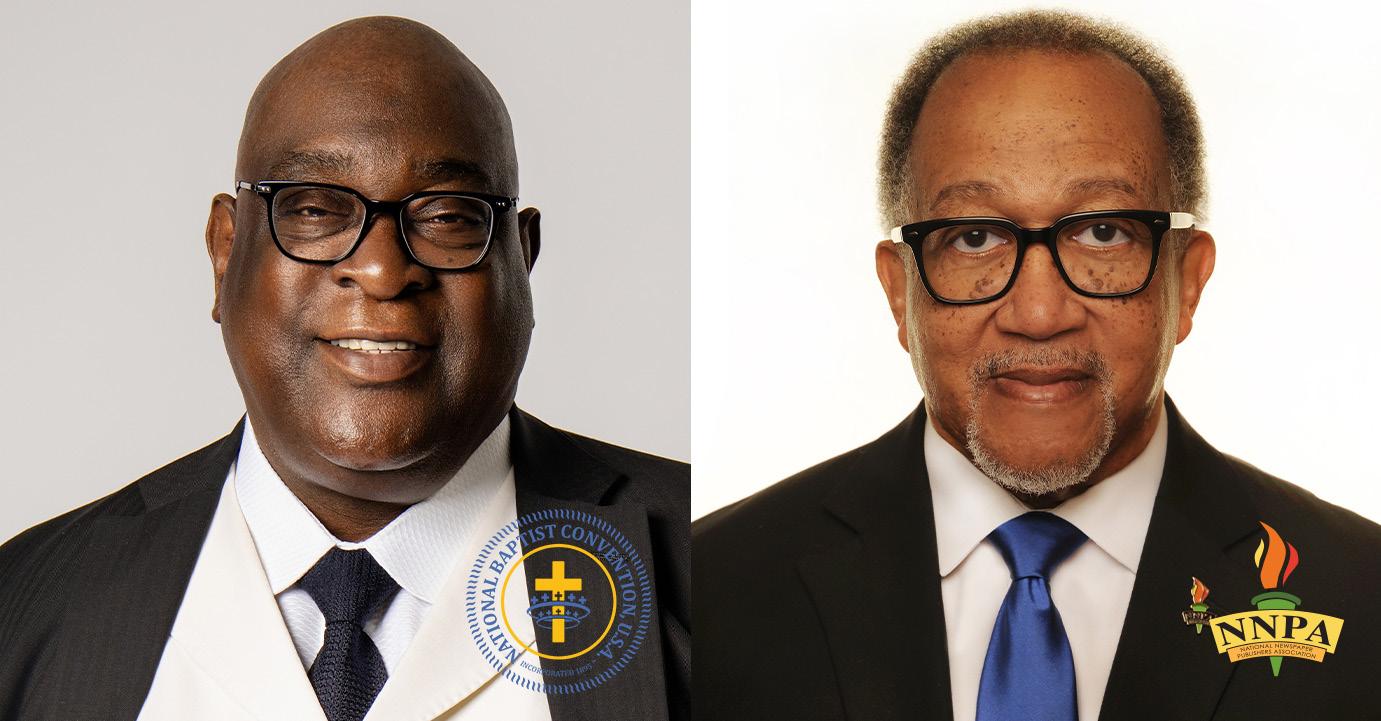
Continued from page 1
owner Abdulrahim Harara, speaking to a crowd of community supporters and media representatives who filled the event space next to the coffee house at 5443 Telegraph Ave.
In the suit announced on July 9 by the U.S. Department of Justice, Harara is accused of discriminating against Jewish customers in incidents that occurred at the café last fall.
In their reply, Harara, his attorneys and supporting organizations responded to what they are calling “false allegations of anti-Semitic discrimination” alleged in three separate lawsuits brought by the Department of Justice (DOJ), the Anti-Defamation League (ADL), and the Brandeis Center (BC), calling these suits a “racist, politicallymotivated attack on Harara and the community his cafe serves.”
“These groups (are) masquerading as civil rights organizations and so-called justice centers (but) specialize in normalizing the murder of children and the rape and torture of civilians,” Harara said.
“They fear our collective power,” he continued “These lawsuits, these campaigns to silence and destroy us, are desperate attempts to fracture our community, dismantle our faith, erase our voices, and suppress our will to fight. But they will not succeed.”
He said he strongly opposes both Islamophobia and antisemitism and denies he has ever refused to serve any customers because they are Jewish, as alleged in the lawsuits.
protections by these special interest groups actually works to erode our hard-won civil rights. These civil rights should protect establishments like the Jerusalem Coffee House against the Islamophobia and racism that Mr. Harara and the cafe workers are currently facing from ADL and BC-backed provocateurs.”
“I hope that we will expose these cases for what they are, hypocritical attacks on a really beautiful and loving part of our community,” he said. “I am proud to be part of this community, who has said things that I find dear to my heart and dear to my soul.”
Said Rabbi Cat Zavis from Beyt Tikkun, Jewish Voice for Peace Rabbinical Council, and the International Jewish Anti-Zionist Network, “The ADL misrepresents itself as a bulwark against antisemitism, when in reality it demeans the brutal history of genocidal antisemitism by weaponizing it against opponents of today’s genocides.”
Monadel Herzallah, a member of the National Coordinating Committee of the U.S. Palestinian Community Report, said the incidents that occurred in the café were an attempt to provoke and entrap businesspeople, similar what has been done around the country.
Porter, former Los Angeles Mayor Antonio Villaraigosa, former Biden administration health secretary Xavier Becerra and a handful of state officeholders.
In the contest to replace Newsom, who is rumored to be considering running for president in 2028, Harris would have had considerable advantage because of name recognition, fundraising abilities and her proven record of handily winning the offices of San Francisco district attorney, state attorney general and U.S. senator. But returning to statehouse politics after years on the national and international stage may not have been appealing.
Young voters
Democratic strategist Sean Clegg, a longtime Harris adviser, said a nonprofit to engage younger voters may be in her future.
“She’s been in elective office for 22 straight years, she’s been in public service since she got out of law school,” Clegg said. “Having spent her entire life inside the system, she’s more motivated, more excited by the opportunity to make change outside of the system.”
Black, Asian and female, Harris made history each time she took public office, buoying hopes for success in last fall’s election.
But with her failure, the battle to persuade Democrats to try again may be uphill.
The 2028 presidential contest is expected to attract a large field, which could potentially include Newsom. Any candidate will have to unify a fractious Democratic Party with low approval ratings that is struggling to slow Trump’s agenda in Washington, AP reported.
The Associated Press is the source of this report.
By BlackPressUSA
In a historic announcement in Nashville, Tennessee, on July 25, a coalition of leading Black faith organizations and the National Newspaper Publishers Association (NNPA) unveiled a strategic partnership and plan to confront systemic disparities impacting African American communities nationwide.
Dr. Boise Kimber, president of the National Baptist Convention, USA, Inc.; Bishop J. Drew Sheard, presiding bishop of the Church of God in Christ (COGIC); Dr. Samuel Tolbert, president of the National Baptist Convention of America; and Dr. Benjamin F. Chavis Jr., veteran civil rights leader and president of the NNPA, are leading this collaboration between the Black church and Black Media.
“There is strength in unity. There is power in our collective voice. There is hope in our actions,” said Kimber.
For generations, African American communities have endured deep-rooted inequities in healthcare, education, criminal justice, economic opportunity, and access to capital. These challenges are not new. The coalition intends to put an end to fragmented responses and speak with one clear, concise and consolidated voice.
The Black Church and Black Media, two institutions that have long anchored and uplifted Black America, are now coming together with renewed focus and purpose.
This partnership is grounded in shared values, spiritual conviction, cultural empowerment, and an unwavering commitment to
truth, justice, and progress.
The coalition will focus on five core initiatives:
Shaping a unified national narrative that challenges harmful stereotypes and amplifies stories of Black resilience, excellence, and innovation
• Mobilizing faith-based and media networks to address community disparities through solutions-focused advocacy and outreach
• Holding corporate America accountable by demanding responsible reinvestment in Black communities through sustainable partnerships, economic equity, and community-led development
• Empowering the next generation by reclaiming our narratives and creating new pathways for education, leadership, and entrepreneurship
• Holding elected officials accountable by spotlighting those whose policies do not align with the interests of the Black community. To earn our votes, they must heed our voices.
“This is more than a symbolic gesture; it is a strategic and spiritual alignment. When the Black Church and Black Media speak as one, we can ignite a movement. When we organize as one, we can shift the narrative. When we act as one, we cannot be ignored or denied,” the coalition stated.
The coalition invites all stakeholders, faith leaders, media professionals, community organizers, educators, business leaders, and concerned citizens to join this movement for unity, justice, and progress.
Civil Rights attorney Glenn Katon, who is defending the café, said, “The most recent lawsuit by the U.S. Department of Justice is particularly sad and ironic because we have a Justice Department that is doing everything it can to dismantle civil rights protections in this country. And at this very moment, they are trying to undo consent decrees to stop lending discrimination by banks, (and) … trying to undo consent decrees to stop racial profiling by police.
“Seventy percent of the lawyers in the Civil Rights Division have left, but what do we have here? We have a claim by this hypocritical administration and this hypocritical Justice Department that anti-Semitism is taking place in this café,” he said. “(This) is out of the playbook of disempowering the people of this country.”
Civil rights attorney Walter Riley, who is also representing the café, said “The misuse of anti-racist
“This was not about justice. It was a trap. And all those of us who know (the café owner) know the truth,” he said. “You can see (from) the room here. It’s a room that’s full of people of different religions, different languages, different backgrounds. It looks like America.”
Dr. Hatem Bazian, speaking from the Northern California Islamic Council and the Islamophobia Studies Center, said, “The weaponization of anti-Semitism as a way to cover for genocide is something that we have to stand against and reject.”
Groups supporting the press conference included Jewish Voice for Peace, International Jewish AntiZionist Network, U.S. Palestinian Community Network, Right to Reject Zionism, and National Lawyers Guild.
This is part one of a series about the issues related to the continuing violence in the West Bank and Gaza and how it is impacting Oakland.
Continued from page 1
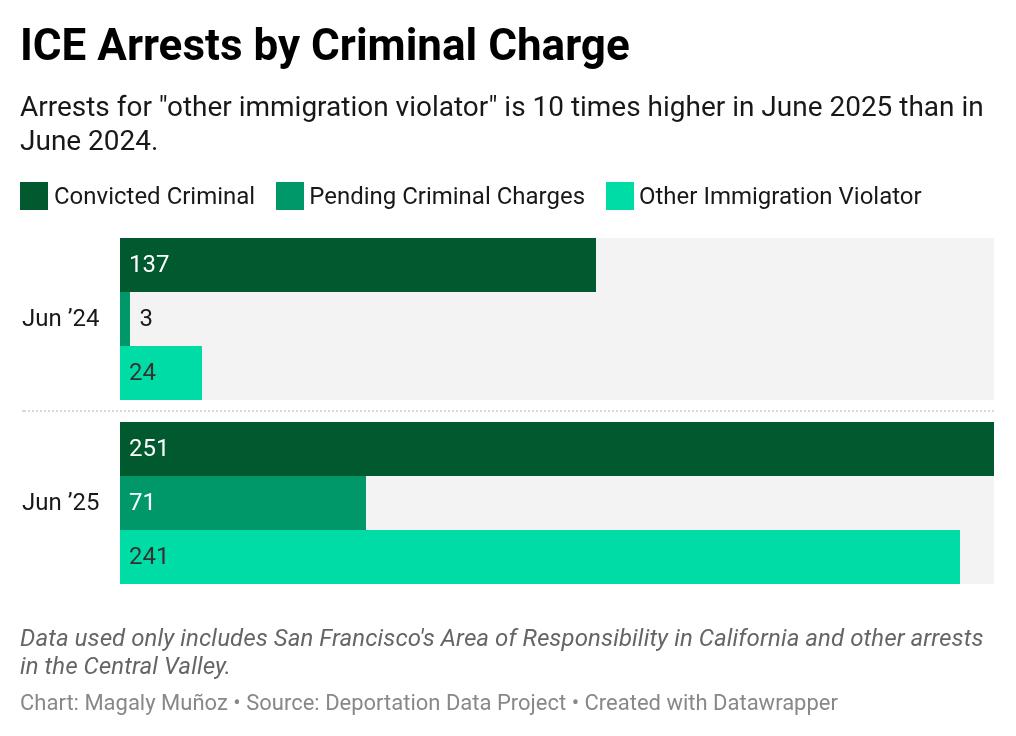
to nationwide protests in June, sparked first in Los Angeles, which pushed the arrival of the National Guard to tame the situation.
Advocates urged the Trump administration to cease raids of immigrants, saying without these communities, the U.S. would suffer greatly. Reports, including one by the Bay Area Economic Institute, allege billions of dollars of lost profit with the impending removals of immigrants.
Immigrants of all status have
shared that they fear leaving their homes for work or necessities, worried that they will encounter immigration enforcement in the areas vulnerable communities tend to frequent.
“We don’t want to leave our homes, but at the same time, if we don’t go outside, we don’t work,” a day laborer in Oakland told the Post in the first few months of Trump’s presidency. “If we don’t work, we can’t afford to live.”